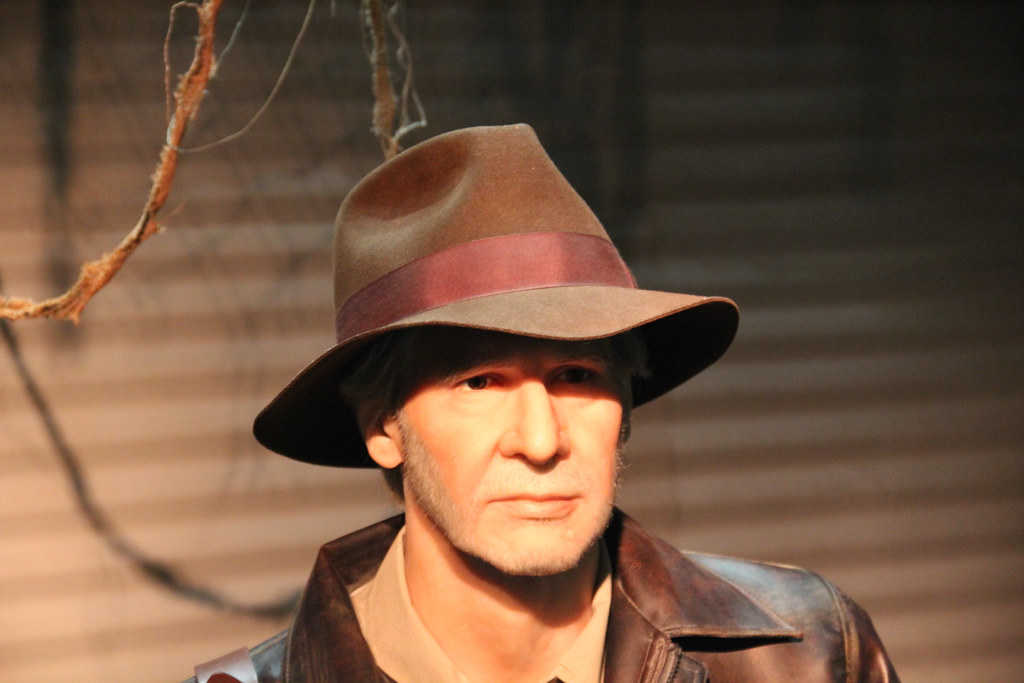
In the vast constellation of Hollywood stars, where larger-than-life personalities often dominate the landscape, Harrison Ford stands as a true anomaly. His journey through the entertainment industry, spanning over six decades, is not merely a chronicle of box-office successes but a testament to a unique ethos – a stoic, no-nonsense, get-it-done attitude that has indelibly shaped his rugged appeal and cinematic legacy.
While stardom is often a sought-after outcome, Ford has consistently demonstrated a distinct discomfort with the trappings of celebrity. He’s historically despised press junkets and glitzy Hollywood parties, preferring a retreat to the quiet comfort of his ranch, or finding escape in the cockpit of one of his vintage airplanes, taking to the skies where it’s physically impossible to reach him. This unwavering dedication to the work itself, rather than the adoration it brings, forms the bedrock of his enduring mystique.
As the now 81-year-old actor continues to captivate audiences, most recently channeling that inimitable ethos in *Indiana Jones and the Dial of Destiny*, the fifth and final installment in that beloved series, it is an opportune moment to look back. We embark on an in-depth exploration of the greatest roles from his legendary career, performances that not only defined genres but also etched themselves into the very fabric of popular culture, showcasing a rare blend of charisma, vulnerability, and unwavering resolve.
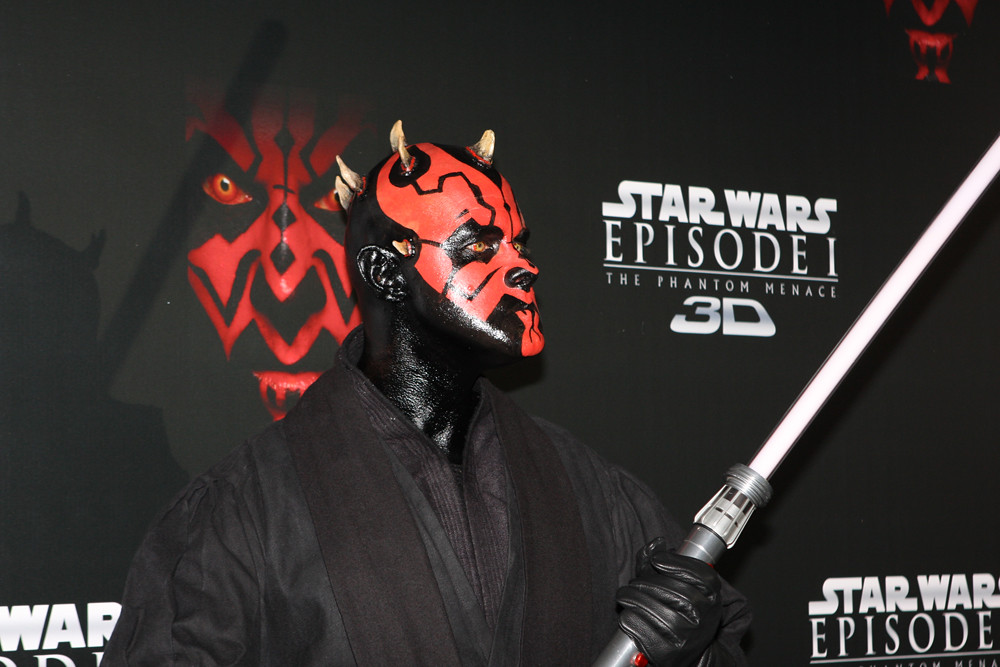
1. Star Wars (Series, 1977-2019): The Rogue Who Stole Our Hearts as Han Solo
Harrison Ford made the roguish and charismatic smuggler-turned-hero, Han Solo, truly his own, establishing a character that would become one of cinema’s most beloved figures. From his initial appearance in *Star Wars: A New Hope* (1977), Solo’s quick wit, cynical charm, and underlying heroism instantly resonated with audiences, solidifying Ford’s place in movie history and launching a cherished franchise that would redefine blockbuster filmmaking.
As the epic series went on, director George Lucas gave Ford “carte blanche” to channel his man’s man ethos, allowing him to infuse the character with even greater depth and spontaneity. This creative freedom was pivotal in solidifying Han Solo as a fan-favorite, a scoundrel with a heart of gold who always delivered a compelling performance, whether blasting Storm Troopers or trading barbs with Princess Leia.
One of the most iconic moments in cinematic history arose from this improvisational spirit. In *The Empire Strikes Back* (1980), just as Solo is about to be frozen in carbonite, Leia (Carrie Fisher) tells him: “I love you.” Ford, with a stroke of genius, changed the scripted line “I love you, too” to the now legendary, “I know.” This single line vastly improved the scene, adding layers of cool defiance, romantic fatalism, and undeniable swagger that perfectly encapsulated the character and Ford’s unique interpretation.
Ford reprised the role across the original trilogy, including *Return of the Jedi* (1983), and returned decades later for *Star Wars: The Force Awakens* (2015) and a cameo in *The Rise of Skywalker* (2019). His return in *The Force Awakens* was enhanced by a potent mix of action, nostalgia, and emotional depth, underscoring the character’s enduring appeal and Ford’s continued ability to inhabit him with the same effortless charisma. Han Solo remains a towering figure, synonymous with adventure and the boundless possibilities of space opera.
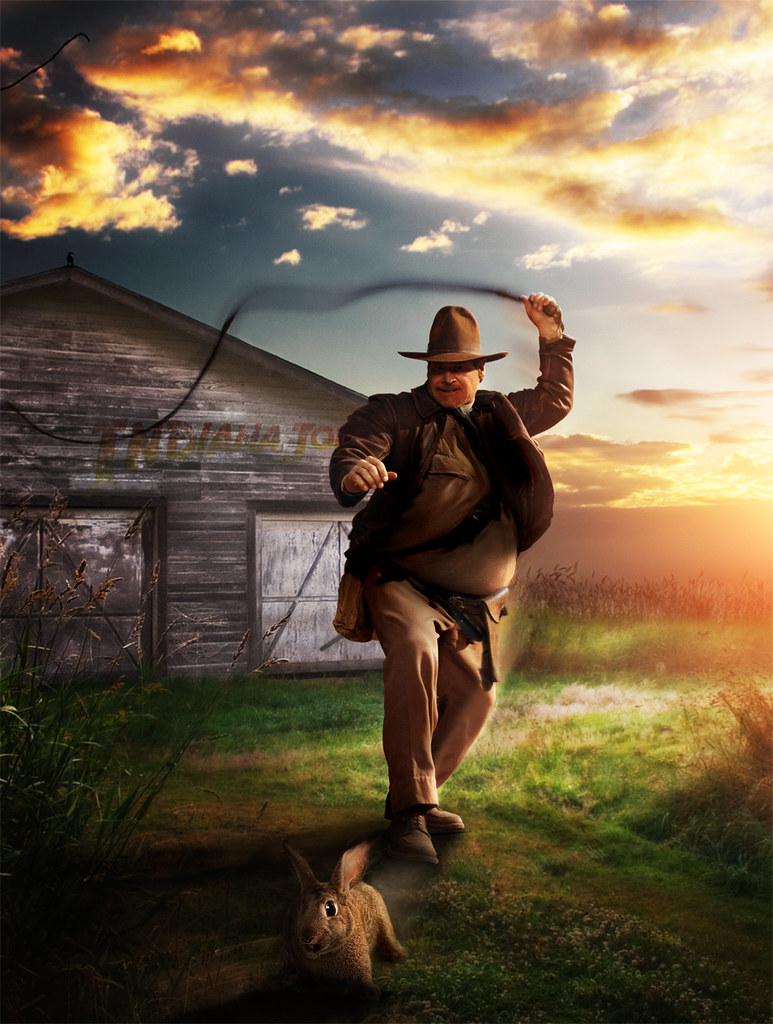
2. Indiana Jones (Series, 1981-2023): The Quintessential Adventurer
Following his seismic success as Han Solo, Harrison Ford next delivered another character that would become a global phenomenon: Dr. Henry Walton “Indiana” Jones Jr. Ford made Indiana Jones more than an action hero; Indy is synonymous with everything that delights us about going to the movies, a symbol for the whole of the medium itself. His portrayal of the whip-cracking archaeologist in *Raiders of the Lost Ark* (1981) immediately established a new archetype for the swashbuckling hero, blending intelligence, vulnerability, and daring action.
Ford embodies the spirit of an old-school hero as Indy risks his life to protect ancient artifacts from the clamoring hands of greedy evildoers. He digs deep into Indy’s rugged surface, excavating the disarming qualities that make him so lovable, whether it’s his fear of snakes or his genuine passion for history. This depth allowed the character to transcend mere action, imbuing him with a relatability that few adventurers possess, making audiences root for him not just for his heroics, but for his very humanity.
His journey as Indiana Jones continued through *The Temple of Doom* (1984), a darker and more intense chapter, and *The Last Crusade* (1989), where he teams up with his estranged father (Sean Connery) in a quest for the Holy Grail. These films, along with *Kingdom of the Crystal Skull* (2008), cemented Indy as a cultural touchstone, a character whose blend of academic pursuit and daring escapades captured the imaginations of generations.
In a poignant moment during a recent interview about *Indiana Jones and the Dial of Destiny* (2023), journalist Ali Plumb expressed gratitude “on behalf of all the fans,” stating, “We love you so much… you mean the world to us.” Ford, notorious for his aversion to pressers, became visibly emotional, fighting back tears. He replied, “And I must say to you thank you sincerely, it means the world to me.” This rare glimpse into Ford’s personal connection to the role underscored the profound impact Indiana Jones has had, not just on audiences, but on the actor himself.

3. American Graffiti (1973): The Catalyst for a Legendary Partnership
Long before he donned the fedora or piloted the Millennium Falcon, Harrison Ford delivered a pivotal performance in *American Graffiti* (1973), George Lucas’s heartfelt love letter to his teenage years. In this film, Ford played Bob Falfa, a mouthy and rebellious hot rod racer whose wits were as quick as his ’55 Chevy. Though his role was relatively small, it was instrumental in catching Lucas’s attention.
Falfa’s character, with his undeniable swagger and cowboy persona, was undoubtedly the inspiration for Ford’s later iconic role in that “little space movie” Lucas would direct a few years later. This early collaboration proved to be a serendipitous connection, laying the groundwork for one of the most significant director-actor partnerships in cinematic history.
The success of *American Graffiti* marked the beginning of Ford’s transition from minor roles to more substantial parts, providing him with critical visibility. It showcased his ability to embody a charismatic, albeit slightly antagonistic, figure with natural ease and a simmering intensity that hinted at the star power yet to fully erupt. This breakthrough moment was crucial, demonstrating his potential and setting the stage for the astronomical rise that was just around the corner, fundamentally altering the trajectory of his burgeoning career.
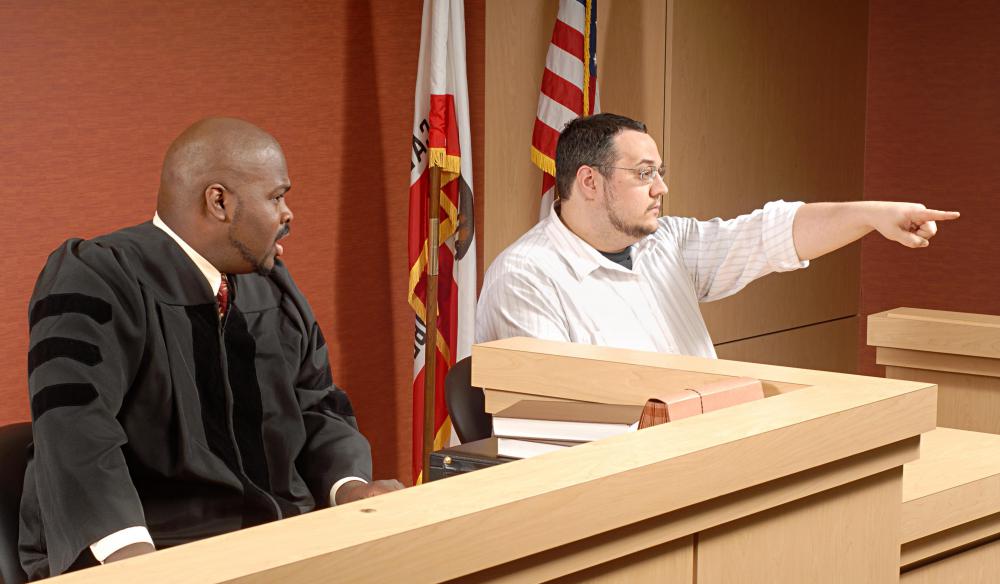
4. Witness (1985): A Dramatic Revelation and Oscar Nomination
*Witness* marked a profound turning point in Harrison Ford’s career, proving he could excel in more dramatic and character-driven roles beyond the clever one-liners and bombastic set pieces of *Star Wars* and *Indiana Jones*. In this acclaimed film, Ford portrays John Book, a tough and experienced Philadelphia detective whose world is irrevocably altered when he finds himself immersed in the deeply foreign culture of an Amish community.
Book becomes the protector and confidant of a young Amish boy who has witnessed a murder, forcing him to navigate a stark contrast between his gritty urban reality and the peaceful, traditional life of the Amish. Ford expertly channels Book’s struggle to adapt, his growing affection for the community, and his unwavering resolve to bring the killers to justice, all while being a fish out of water.
His performance was widely praised for its depth and nuance, showcasing a vulnerability and emotional range that audiences had not fully seen from him before. This role earned him an Academy Award nomination for Best Actor, a significant recognition that solidified his status as a versatile and formidable dramatic actor, capable of carrying a film with understated power.
*Witness* was a critical and commercial success, celebrated not only for its compelling narrative but also for Ford’s masterful portrayal of a man caught between two worlds. It demonstrated his capability to carry a film with profound emotional weight, further expanding his artistic repertoire and cementing his reputation as one of Hollywood’s most respected leading men. The film allowed Ford to truly stretch his acting muscles, earning him acclaim for a performance that was both raw and deeply human.

5. Blade Runner (Series, 1982/2017): The Brooding Visionary of Dystopian Neo-Noir
In Ridley Scott’s dystopian neo-noir masterpiece *Blade Runner* (1982), Harrison Ford plunged into a profoundly different kind of hero, playing Rick Deckard. Deckard is a former Blade Runner, a specialized law enforcement officer tasked with hunting down and “retiring” rogue humanoid robots known as replicants. This role allowed Ford to explore a darker, more ambiguous character, far removed from the clear-cut heroics of Solo or Indy.
Ford’s world-weary eyes and perpetual five o’clock shadow, dimly illuminated against a backdrop of towering neon skyscrapers and a constant downpour of rain, came to define the cyberpunk genre. His brooding intensity and internal conflict added immense depth to the film’s philosophical exploration of artificial intelligence, humanity, and identity. Deckard’s ambiguous nature – questioning whether he himself might be a replicant – was masterfully conveyed through Ford’s nuanced, understated performance.
The film, initially divisive upon its release, has since become a classic, revered for its groundbreaking visuals, complex themes, and Ford’s iconic portrayal. It showcased his ability to anchor a visually ambitious and intellectually challenging narrative, proving his versatility beyond action-adventure. The moody, atmospheric world of *Blade Runner* was perfectly complemented by Ford’s tormented and introspective performance.
Ford reprised his role 35 years later in *Blade Runner 2049* (2017), joining a new generation of humans and replicants. His return added more emotional depth to the futuristic dark world, delving further into questions of identity and humanity. This sequel provided a poignant continuation of Deckard’s story, allowing Ford to bring a lifetime of experience to a character whose existential crisis remains as relevant as ever, further solidifying the film’s status as a landmark of science fiction.
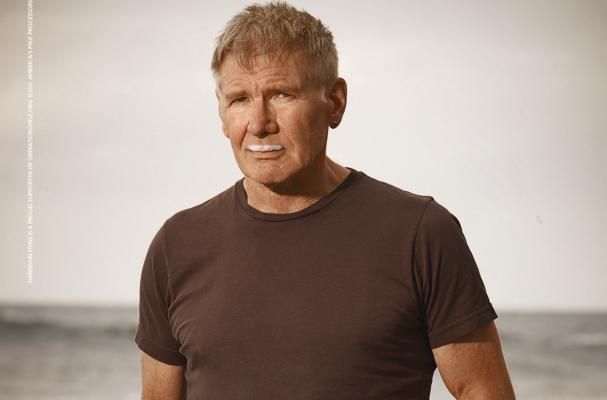
6. The Fugitive (1993): The Relentless Pursuit of Justice
Harrison Ford delivered a powerhouse performance in *The Fugitive* (1993), a classic thriller where he portrays Dr. Richard Kimble, a man wrongfully arrested for the brutal murder of his wife. The film catapults Kimble into a desperate race against time, as he sets out to find the real killer while relentlessly evading capture from a determined U.S. Marshal, played by the equally brilliant Tommy Lee Jones.
This tense yet subtle film foregoes much of the over-the-top action often seen in such thrillers, choosing instead to focus on the relentless psychological and physical pursuit. It makes way for a sleuthing Ford, who expertly channels Kimble’s anguish, confusion, and steely determination. His performance is a masterclass in conveying immense emotional pain and unwavering resolve, as he navigates a complex web of deceit and danger.
The critical and commercial success of *The Fugitive* was largely attributed to Ford’s intense and believable portrayal. He made Kimble’s plight profoundly relatable, allowing audiences to deeply invest in his desperate quest for justice and clear his name. The film was praised for its gripping narrative and the superb interplay between Ford and Jones, whose performances elevated the material beyond a simple chase movie.
Ford’s portrayal earned him a Golden Globe nomination, further cementing his reputation as a formidable dramatic actor capable of commanding both critical acclaim and box office success. *The Fugitive* stands as a testament to his ability to blend intense action with a deeply compelling character study, proving that Ford could carry a high-stakes thriller with a performance rich in psychological complexity and unwavering determination.
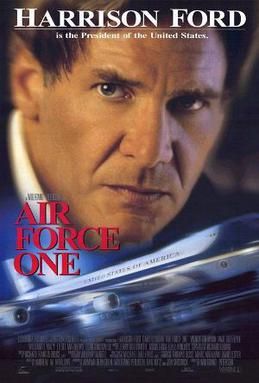
7.Air Force One (1997): The Commander-in-Chief Who Fights Back
In the high-octane political action-thriller *Air Force One* (1997), Harrison Ford took on the ultimate leadership role as fictional U.S. President James Marshall. The film places Marshall in an impossible situation: his presidential plane, Air Force One, is hijacked by a group of Eastern European terrorists led by an insane Gary Oldman. Ford’s President Marshall is not merely a figurehead but a proactive, hands-on leader determined to protect his family and his nation.
The film is often described as “*Die Hard* in the sky,” a moniker it lives up to with its relentless action and high stakes. Ford keeps the film from crashing and burning with his rough and glowering presence, embodying a president who is both a skilled combatant and a steadfast symbol of American resolve. He delivers fun, cheesy one-liners with conviction, most famously the defiant “Get off my plane!” which has become an enduring cinematic quote.
Ford’s performance as the heroic president was both charismatic and convincing, adding immeasurably to the film’s appeal and commercial success. He portrays Marshall not just as a political leader, but as a devoted family man and a formidable opponent, willing to go to extreme lengths to ensure the safety of those aboard and prevent national catastrophe. This blend of paternal protection and national duty made his character incredibly compelling.
*Air Force One* was a massive commercial hit, further solidifying Ford’s status as a top-tier action star who could effortlessly blend political drama with adrenaline-pumping thrills. His dominant performance created constant tension and adrenaline, making the film a memorable entry in his filmography and showcasing his unique ability to command the screen with a potent mix of authority and rugged heroism.
As Harrison Ford’s illustrious career continued its remarkable trajectory, he consistently defied expectations, venturing into roles that showcased his profound versatility and willingness to delve into the more intricate, often morally ambiguous, corners of human experience. These performances, while perhaps not always carrying the blockbuster weight of a *Star Wars* or *Indiana Jones* entry, nonetheless illuminated his enduring appeal and his commitment to challenging himself across a rich tapestry of genres. From courtroom thrillers to romantic comedies and intense psychological dramas, Ford proved that his rugged charm and intense screen presence could adapt to any narrative, enriching his extraordinary six-decade career.
These roles represent the layers peeled back, revealing an actor far more complex and daring than his most famous personas might suggest. They underscore his profound impact and his dedication to the craft, demonstrating a continuous evolution that few actors achieve, especially into their later years. It’s a testament to his intelligence and his discerning eye for material that allowed him to build a filmography so diverse and deeply resonant.
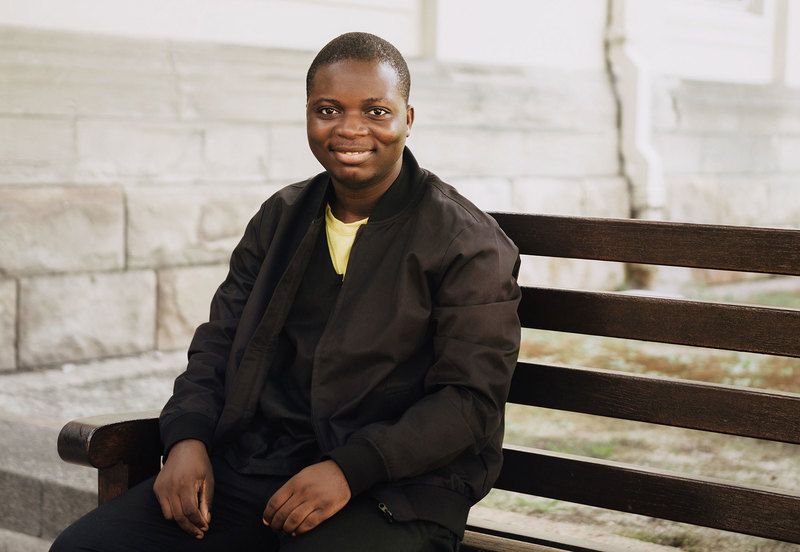
8. Presumed Innocent (1990): The Prosecutor on Trial
In 1990, Harrison Ford took a sharp dramatic turn with *Presumed Innocent*, a gripping courtroom thriller that placed him squarely in the shoes of prosecutor Rusty Sabich. This role offered a profound departure from the clear-cut heroism audiences had come to expect, instead presenting a man whose professional life unravels as he becomes the prime suspect in the murder of his lover and coworker. The film itself is a masterclass in suspense, filled with unforeseen twists and turns that keep viewers on the edge of their seats, continuously questioning Sabich’s guilt or innocence.
Ford’s portrayal of Sabich is nothing short of exceptional, deeply immersing the audience in the character’s anguish, confusion, and desperate fight for his reputation and freedom. He navigates the murky ethical waters and the escalating personal crisis with a subtle intensity, delivering a performance that is both nuanced and powerful. This role was a crucial step in cementing his reputation as a formidable dramatic actor, proving his capacity to embody profound emotional complexity beyond the realm of action-adventure.
The film’s critical and commercial success further underscored Ford’s ability to headline a complex dramatic narrative. His performance ensured that the mystery remained compelling right up to the very end, leaving a lasting impression of a man battling not just a legal system, but his own moral ambiguities. *Presumed Innocent* remains a testament to Ford’s skill in taking on intricate character studies, broadening the scope of what audiences knew him to be capable of.
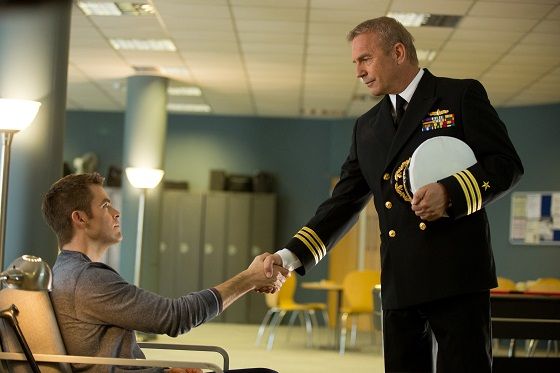
9. Jack Ryan (Series, 1992/1994): The Resolute CIA Analyst
While Harrison Ford is undeniably a “franchise man,” his turn as Tom Clancy’s iconic CIA analyst Jack Ryan offered a distinctly different kind of hero from Han Solo or Indiana Jones. Appearing in *Patriot Games* (1992) and *Clear and Present Danger* (1994), Ford lent his considerable gravitas and unmistakable charm to a character who, as the context notes, “loves the USA, hates terrorists, and that’s about as deep as it goes.” Yet, Ford, with his unparalleled ability to elevate material, managed to infuse Ryan with a compelling blend of intellect and integrity.
In *Clear and Present Danger*, Ford’s Jack Ryan reveals a secret conflict between Colombian traffickers and the U.S. government, plunging him into a dangerous web of political intrigue and covert operations. Ford’s superb performance shines as he embodies a “resolute and moral CIA analyst,” navigating intense action sequences with astute espionage and a steadfast commitment to justice. He brings an undeniable authenticity to the role, making Ryan a relatable figure despite the high stakes of international intelligence.
These films allowed Ford to further demonstrate his prowess in the political thriller genre, showcasing his capacity to blend intense action with sharp, intelligent storytelling. He brought a sense of grounded realism and unwavering determination to a character that could have been purely two-dimensional. His involvement solidified the Jack Ryan series as a significant entry in his filmography, proving his appeal extended far beyond the fantastical realms of space and archaeology into the gritty world of espionage, elevating the material with his signature brand of integrity.
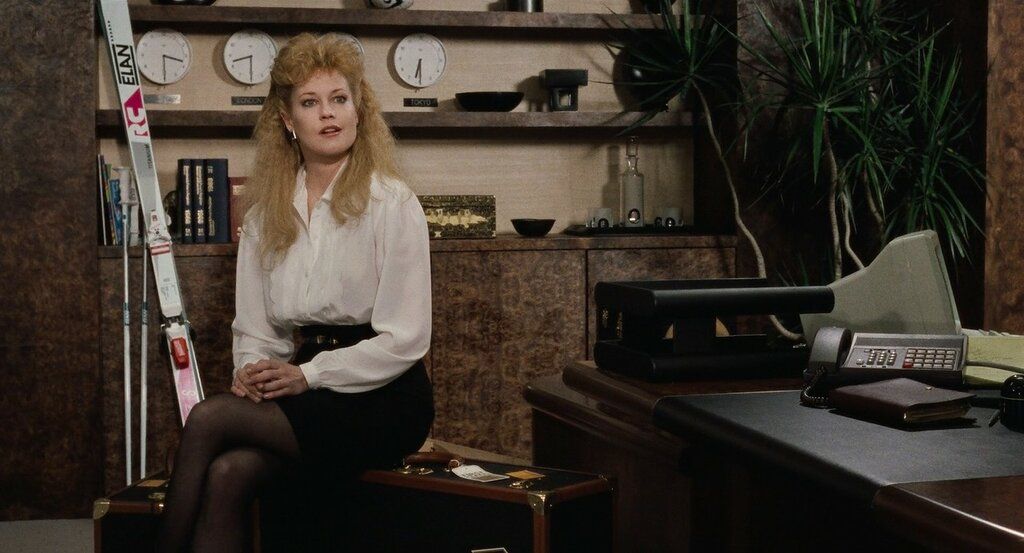
10. Working Girl (1988): An Endearing Romantic Lead
In a delightful and unexpected shift, Harrison Ford charmed audiences in the 1988 romantic comedy-drama *Working Girl*. Here, he stepped away from his customary action-heroics and intense dramatic roles to embrace a more “endearing, romantic role” as Jack Trainer, a wealthy CEO. This film provided a refreshing platform for Ford to showcase his lighter side, proving his versatility and ability to connect with audiences in a completely different emotional register.
His character, Jack Trainer, finds himself intricately entangled in the ambitious professional goals of Tess McGill, a resolute secretary played by Melanie Griffith. The narrative, a humorous yet inspiring tale of corporate climbing and unexpected romance, benefited immensely from Ford’s understated charisma. He played the supportive and genuinely likable love interest with a natural ease, allowing his innate charm to come to the forefront without resorting to overt romantic gestures.
*Working Girl* stands out as a testament to Ford’s willingness to experiment with genres, demonstrating that his appeal wasn’t limited to whip-cracking adventures or brooding sci-fi. His performance in this film, alongside Griffith and Sigourney Weaver, proved that he could effortlessly navigate the nuances of a romantic comedy, bringing both humor and heart to the screen. It offered a crucial glimpse into his wider acting range, solidifying his status as a leading man capable of captivating audiences across the full spectrum of cinematic storytelling.
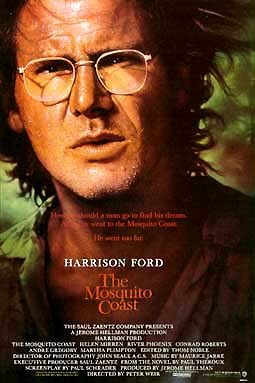
11. The Mosquito Coast (1986): A Study in Obsession and Unlikability
Harrison Ford delivered one of the most daring and psychologically complex performances of his career in Peter Weir’s 1986 drama, *The Mosquito Coast*. Taking on the role of Allie Fox, a brilliant but deeply unstable inventor, Ford plunged into a character utterly unlike his celebrated heroes. Fox, disillusioned with American consumerism, uproots his family to embark on a quixotic quest to build a utopia in the Central American rainforests, leading them into a spiraling descent driven by his own megalomania.
This film presented Ford at his “most unlikeable,” a stark contrast to the charismatic figures audiences had embraced. Allie Fox is a patriarch consumed by his own ego, whose grand vision gradually morphs into a destructive obsession, endangering those he claims to protect. Ford tackles this “character study of a father’s egotism” with an “ambitious, powerful performance,” peeling back layers of a man whose brilliance is tragically intertwined with his hubris.
While the plot may have been described as meandering, Ford’s intense and unflinching portrayal anchors the entire narrative, making Allie Fox a compelling, albeit often infuriating, figure. It was a role that demanded significant emotional depth and a willingness to shed any pretense of heroism, truly demonstrating Ford’s commitment to exploring the darker, more challenging aspects of the human psyche. *The Mosquito Coast* remains a powerful example of Ford’s courage to take risks and inhabit roles that push the boundaries of audience expectation, solidifying his artistic range beyond his blockbuster fame.
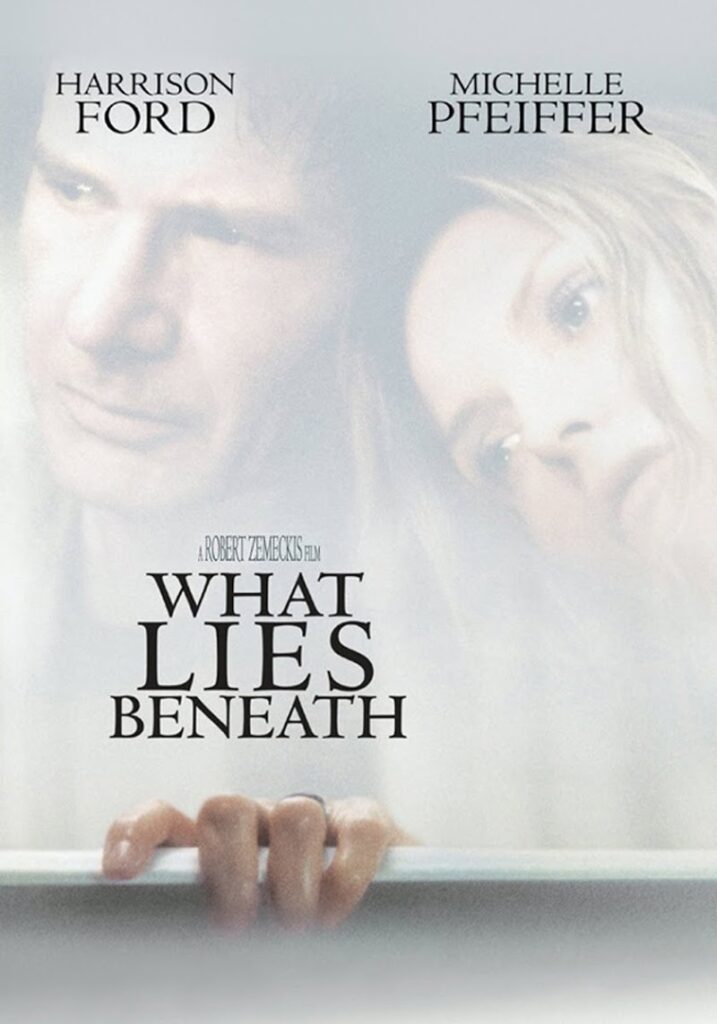
12. What Lies Beneath (2000): The Darkest, Most Tormented Performance
In a chilling departure into the realm of psychological horror, Harrison Ford delivered what was arguably his “darkest, most tormented performance” in Robert Zemeckis’s 2000 thriller, *What Lies Beneath*. Starring opposite Michelle Pfeiffer, Ford portrays Norman Spencer, a seemingly loving husband whose life with his wife, Claire, takes a sinister turn after their daughter leaves for college. The arrival of mysterious, ghostly occurrences in their Vermont lake house blurs the line between reality and the supernatural, drawing them into a terrifying mystery.
As the chilling narrative unfolds, Ford masterfully embodies a character who is initially perceived as a supportive, if somewhat detached, academic. However, the film gradually reveals the deeply unsettling aspects of Norman, forcing Ford to delve into a portrayal that is both nuanced and utterly sinister. His ability to convey a sense of unease and hidden darkness beneath a veneer of normalcy is a testament to his profound acting prowess, making his character’s true nature all the more shocking.
*What Lies Beneath* was a critical juncture in Ford’s career, showcasing his willingness to shed his heroic image and embrace a role that required him to portray genuine villainy and torment. The film’s suspense and atmospheric dread are amplified by his compelling performance, which remains etched in memory for its sheer intensity and unexpected villainous turn. It further underscored his capacity for dramatic depth and his eagerness to explore challenging roles, even late into his remarkable career, adding a unique, chilling entry to his diverse filmography.
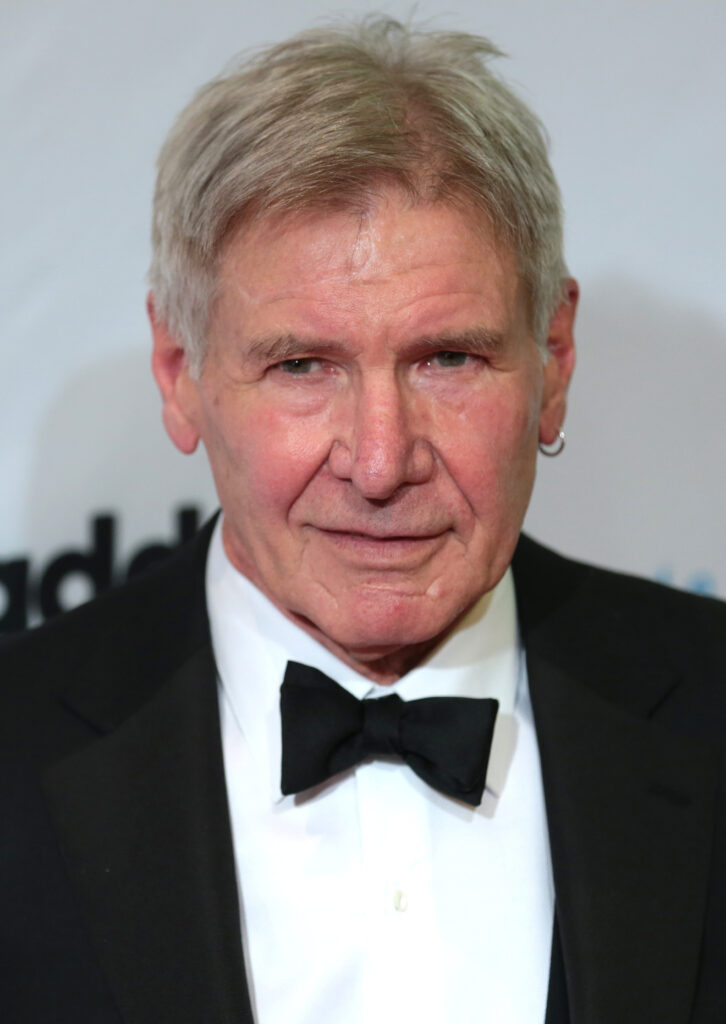
13. 42 (2013): The Visionary Behind Jackie Robinson
Harrison Ford once again surprised audiences with his transformative portrayal of Branch Rickey in the 2013 historical sports drama *42*. In this powerful film, Ford stepped into the shoes of the real-life Brooklyn Dodgers executive who courageously broke baseball’s color barrier by signing Jackie Robinson, played by Chadwick Boseman. This role allowed Ford to embody a historical figure of immense integrity and foresight, further diversifying his already impressive resume.
Ford’s performance as Rickey is described as “remarkable,” as he injects the character with palpable “passion and tenacity.” He captures the shrewdness and moral conviction of a man who faced significant opposition to his groundbreaking decision, depicting Rickey not just as a baseball executive, but as a pivotal figure in the American Civil Rights movement. His portrayal added immense depth and authenticity to this “motivational true tale of bravery and transformation in the sports industry.”
This role underscored Ford’s enduring ability to command the screen in character-driven narratives that carry significant cultural weight. Rather than relying on physical action, he conveyed strength through intellect and unwavering resolve, showcasing his masterful command of dramatic nuance. *42* stands as a testament to Ford’s commitment to compelling storytelling and his desire to bring impactful historical figures to life, proving his continued relevance and capacity for powerful, memorable performances deep into his career.
From the exhilarating escapades of a galaxy far, far away to the somber introspection of a dystopian future, and from the relentless pursuit of justice to the complexities of the human heart, Harrison Ford has, for over six decades, woven an indelible tapestry across the cinematic landscape. His career is not merely a collection of iconic roles but a living testament to an actor’s unwavering dedication to his craft, his willingness to evolve, and his inherent ability to imbue every character, no matter how grand or gritty, with a unique blend of integrity, charisma, and a compelling, no-nonsense spirit. As he continues to captivate and challenge audiences, his legacy remains robust, a true benchmark of Hollywood excellence and an enduring inspiration for generations to come.



